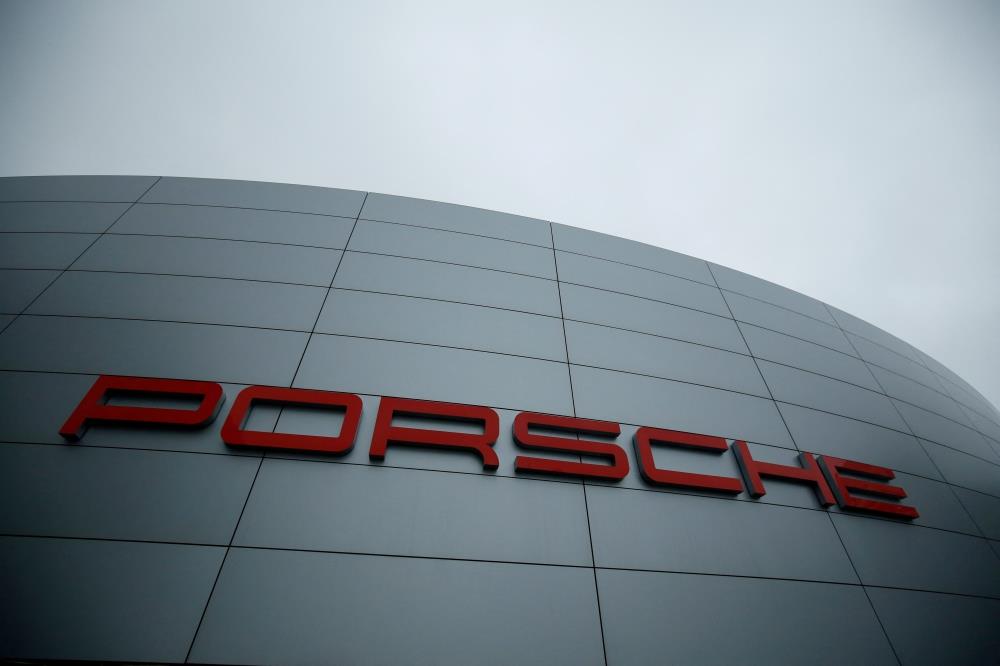Porsche Slows Electric Shift, Prompting VW Profit Warning
Frankfurt, Germany: German sports car maker Porsche said Friday that it would dramatically slow its shift to electric vehicles amid weak demand, prompting parent company Volkswagen to warn of a multibillion-euro hit.
It was the latest turmoil for 10-brand VW, Europe's biggest carmaker, which is struggling not only with a stuttering EV transition but also fierce competition in China and US President Donald Trump's tariff onslaught.
"We're realigning Porsche across the board," said CEO Oliver Blume, as the carmaker announced plans that amounted to a major rollback of its EV ambitions.
"In doing so, we want to meet new market realities and changing customer demands."
Volkswagen said the changes to the sports car maker's EV plans and other charges would negatively impact the overall group's operating results by 5.1 billion euros ($6 billion) in the 2025 financial year.
Among measures announced by Porsche was a delay in the introduction of some fully electric cars, and extending the life of some combustion engine and hybrid models.
A new SUV series -- which was originally to be launched as fully electric -- will now be exclusively offered as combustion engine and hybrid at market launch.
The maker of the 911 sports car cited the "significant slower growth of the demand for exclusive battery-electric vehicles" as a reason for making the changes.
The manufacturer had already announced last month that it was abandoning plans to mass-produce its own electric car batteries.
Chinese competition
As a result of the changes, Volkswagen also cut its forecast for operating profit margins -- closely watched by investors -- to a range of two to three percent for 2025, down from a previous forecast of four to five percent.
Porsche has long been struggling, in particular due to falling demand for its luxury models in the key Chinese market.
In February, it announced 1,900 job losses and has warned of more cost cuts ahead.
In a sign of how bad times are, Porsche is also due to drop out of Germany's blue-chip DAX index on Monday after its shares tanked.
The wider VW group is in difficulty. It struck a deal with unions to cut 35,000 jobs by 2030 at its namesake VW brand in Germany as it seeks to reduce costs.
Trump's tariffs have only added to VW's headaches, with the group reporting a 3.1-billion-euro hit from the levies in the first half of the year.
China, long a key source of sales, has become a fierce battleground for the carmaker as it fights back against rising competition from local rivals like BYD.
BMW and Mercedes-Benz, as well as a host of German auto suppliers, have also been slashing costs as they struggle to keep up with a host of emerging rivals.

Legal Disclaimer:
MENAFN provides the
information “as is” without warranty of any kind. We do not accept
any responsibility or liability for the accuracy, content, images,
videos, licenses, completeness, legality, or reliability of the information
contained in this article. If you have any complaints or copyright
issues related to this article, kindly contact the provider above.
Most popular stories
Market Research

- Excellion Finance Scales Market-Neutral Defi Strategies With Fordefi's MPC Wallet
- BILLY 'The Mascot Of BASE' Is Now Trading Live On BASE Chain
- Pascal And Treehouse Partner On Proof Of Concept To Pioneer Smart Clearing For Decentralized Fixed Income Products
- XXKK Exchange Strengthens AML And KYC Systems To Elevate Compliance Standards
- Kucoin Partners With Golf Icon Adam Scott As Global Brand Ambassador
- TOKEN2049 Singapore Breaks Records: 25,000 Attendees At The World's Largest Web3 Event






















Comments
No comment